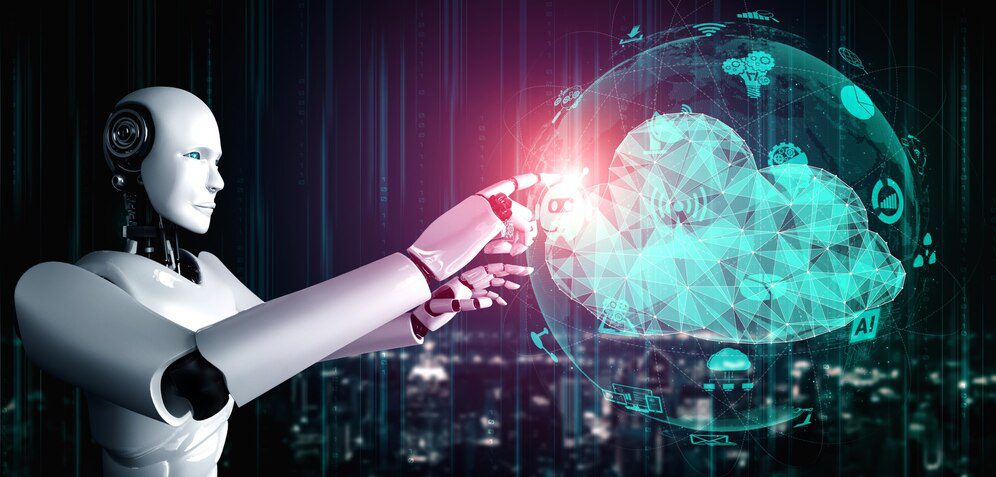Artificial intelligence (AI) is transforming digital marketing, making it more efficient, data-driven, and personalised. In 2026, leveraging AI tools for digital marketing is no longer an option but a necessity. Whether you’re looking to automate tasks, analyse consumer behaviour, or create engaging content, AI-powered tools can help you stay ahead of the competition.
In this blog, we’ll explore the top 10 AI tools for digital marketing in 2026, covering their features, benefits, and how they can revolutionise your strategy. If you want to optimise your campaigns and maximise your ROI, keep reading!
Top 10 AI Tools for Digital Marketing in 2026: Must-Have Solutions to Stay Ahead
1. ChatGPT-4: The Ultimate AI-Powered Content Generator
What is it?
ChatGPT-4 is an intelligent AI chatbot created for content production, customer assistance, and conversational marketing.
What makes it indispensable?
- Creates high-quality blog entries, social media captions, and ad copy in seconds.
- Improves client engagement with real-time, human-like responses.
- Automate email responses to save time and resources.
Pro tip: Use ChatGPT-4 to customise customer interactions and increase conversions.
2. Jasper AI: AI-Powered Copywriting Tool
What is it?
Jasper AI is an AI-powered writing tool that helps marketers create captivating copy for a variety of platforms.
What makes it indispensable?
- Creates compelling sales copy, blog entries, and product descriptions.
- Optimises SEO-driven content using relevant keywords.
- Provides numerous tones and styles to match your brand voice.
Did you know? Jasper AI can boost content productivity by fivefold, making it ideal for content-intensive marketing strategies.
3. SEMrush: AI-Driven SEO and Competitive Analysis
What is it?
SEMrush is an AI-powered SEO and digital marketing solution that helps businesses increase their online presence.
What makes it indispensable?
- Conducts keyword research and competitive analysis.
- Automates website audits and recommends SEO enhancements.
- Monitors rankings and backlinks in real time.
Fact: 70% of marketers believe AI-powered SEO tools have helped their organic search results.
4. Grammarly: AI-Powered Writing Assistant
What is it?
Grammarly is an AI-powered grammar and style checking tool that ensures your material is both error-free and entertaining.
What makes it indispensable?
- Improves clarity, readability, and professionalism.
- Detects plagiarism and recommends content enhancements.
- Compatible with email, social media, and content management systems.
Tip: Use Grammarly’s AI-powered tone detector to ensure your material is consistent with your brand voice.
Also Read – 12 Best ChatGPT Alternatives in 2026
5. HubSpot: AI-Integrated CRM and Marketing Automation
What is it?
HubSpot streamlines marketing processes by combining AI-driven CRM, email marketing, and automation solutions.
What makes it indispensable?
- It automates lead creation and client segmentation.
- AI-powered insights improve personalised experiences.
- Offers analytics to enhance marketing techniques.
Fact: Companies that use AI-powered CRM products experience a 45% increase in lead conversion.
6. Adzooma: AI-Powered PPC Management
What is it?
Adzooma is an AI-powered advertising platform that optimises PPC campaigns on Google, Facebook, and Microsoft Ads.
What makes it indispensable?
- Automates bid modifications and optimising.
- Identifies and addresses campaign inefficiencies.
- Offers real-time data and recommendations.
Tip: Leverage Adzooma’s AI-powered insights to save ad costs while increasing ROI.
7. Canva AI: AI-Enhanced Graphic Design
What is it?
Canva AI is an AI-powered design tool that makes it easier to create visually amazing digital marketing content.
What makes it indispensable?
- Creates social media posts, infographics, and ad creatives effortlessly.
- Colour schemes, fonts, and design layouts are suggested using artificial intelligence.
- Offers AI-powered background removal and image-enhancing tools.
Tip: Use Canva AI to produce brand-consistent visuals that engage your audience.
8. MarketMuse: AI-Driven Content Optimisation
What is it?
MarketMuse is an AI-powered content planning platform that helps marketers develop high-quality content.
What makes it indispensable?
- Conducts extensive topic study and recommends content enhancements.
- AI-generated content briefs help to streamline authoring.
- Improves SEO with targeted keyword recommendations.
Fact: AI-powered content tools can boost organic traffic by up to 50%.
9. Drift: AI-Powered Chatbots for Conversational Marketing
What is it?
Drift is an AI-powered chatbot that aims to boost lead generation and client engagement.
What makes it indispensable?
- It automates customer discussions and leads nurturing.
- It personalises interactions based on user behaviour.
- Integrates with CRM systems to help streamline sales operations.
Tip: Use AI chatbots such as Drift to improve customer service without increasing expenditures.
10. Lumen5: AI-Powered Video Marketing Tool
What is it?
Lumen5 is an AI-powered video creation platform that converts blog posts and text into captivating films.
What makes it indispensable?
- Converts written content to high-quality videos.
- Uses artificial intelligence to dynamically match graphics, music, and text.
- Simplifies video marketing for businesses of any size.
Fact: 85% of firms that use AI-powered video products report greater engagement rates.
Conclusion
AI tools for digital marketing in 2026 are game changers, providing automation, efficiency, and data-driven insights to help optimise marketing initiatives. Whether you require AI for content production, SEO, CRM, or PPC, these tools provide you a competitive advantage.
Integrating AI-powered technologies into your marketing plan can help you save time, improve performance, and increase ROI. Stay ahead of the curve and capitalise on AI-driven digital marketing in 2026!
FAQs
Certainly not. AI will not compete with digital marketing; rather, it is revolutionising it. While AI automates many tedious tasks such as content creation, email segmentation, and ad optimisation, it does not replace human creativity and strategic thinking, which are required for successful digital campaigns.
Human insight is essential in digital marketing, including understanding emotional nuance, cultural context, brand storytelling, and ethical decision-making, areas where AI falls short. AI reduces friction and inefficiencies, freeing marketers to concentrate on strategy, innovation, and creativity. In 2026, digital marketers will not be supplanted by AI, but rather empowered by it, using smart tools to expand campaigns, swiftly review data, and improve user experience. Consider AI to be a capable co-pilot, rather than a takeover agent.
AI will not replace SEO, but it will undoubtedly change the way SEO is done. Search Engine Optimisation has expanded beyond keywords and backlinks to incorporate user intent, content quality, and semantic search, all of which can benefit significantly from AI.
AI solutions in 2026 can track search patterns, competitor content, and user activity in real time, helping marketers to create more focused and relevant content. Generative AI is also accelerating content generation, but without human oversight, it risks providing repetitive or misleading information. Furthermore, Google's algorithms are powered by AI; therefore, SEO specialists must understand how AI systems perceive and analyse content - a capability that humans possess.
In short, AI improves rather than replaces SEO. The future of SEO is collaborative, and digital marketers who understand how to work with AI will have a competitive advantage.
Digital marketing has a promising future. As we move deeper into the digital age, brands are allocating more resources online to reach audiences where they spend the majority of their time. With the rise of immersive technologies like AR/VR, voice search, AI chatbots, and hyper-personalised content, digital marketing in 2026 is more dynamic and crucial than ever.
The digital landscape is rapidly evolving, as are the opportunities. Businesses of all sizes are embracing omnichannel strategy and influencer partnerships, as well as AI-powered analytics and interactive content, to develop meaningful consumer engagements. Furthermore, there is a growing need for digital marketing skills, which creates new job prospects in SEO, content strategy, data analytics, social media, and other disciplines.
So, yes, digital marketing has a future—a daring, fast-paced, technologically advanced one.
In 2026, artificial intelligence will transform digital marketing by making it faster, smarter, and more customer-centric. Here is how.
Hyper-Personalisation at Scale: AI-powered platforms analyse user activities, personalised messaging and product recommendations are provided in real time based on preferences and shopping habits. This has taken personalisation to a whole new level.
Predictive Analytics: Marketers may now predict customer behaviour before it happens. AI analyses past data to estimate purchasing intent, resulting in more accurate targeting and ad design.
Automated Content Creation: Generative AI produces headlines, social media posts, emails, and even films. While human editing is still necessary, the time savings are substantial.
Conversational Marketing: AI chatbots and virtual assistants offer clients prompt, intelligent responses 24 hours a day, seven days a week, enhancing consumer engagement and happiness.
Voice and Visual Search: Artificial intelligence is enabling new means of searching. Users can now find goods using images or voice commands, and marketers are customising their content accordingly.
Ad optimisation: Machine learning algorithms are continually testing ad versions, changing price, and reaching audiences more effectively than ever before.
AI-Powered SEO Solutions: From keyword clustering to competitor research, AI solutions simplify SEO procedures, allowing companies to stay ahead in search rankings.
In essence, AI in 2026 is more than just a marketing toolset; it is a strategic partner. It enables precision marketing on an unprecedented scale, making every digital touchpoint more impactful, data-driven, and relevant than before.





